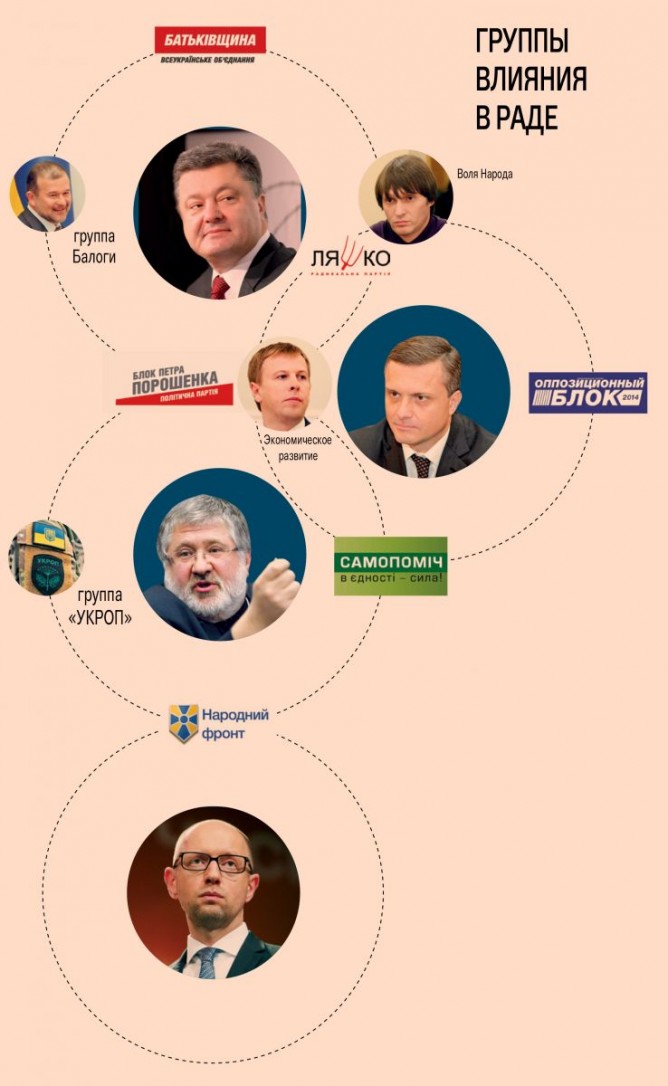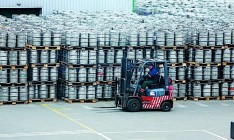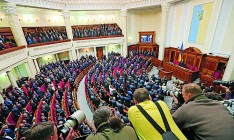Politics
race for powerNew parliament has become hostage to overly ambitious deputies and oligarchs

Snap elections to the Verkhovna Rada did not radically change its composite, but neophyte deputies managed to introduce new features of parliamentary life. The elections also changed the alignment of forces of oligarchs in the VR, whose influence on decision-making in the country’s main legislative body remains quite strong.
New faces
Even prior to the elections to the Verkhovna Rada political analysts and sociologists predicted a substantial revamping of the deputy corps. But notwithstanding the fact that new political projects made it into the parliament, the percentage of new faces in the current convocation of the VR is even less than the previous one – 56% in 2014 versus 60% in 2012.
The distinctive feature of the last elections was inclusion of representatives of volunteer teams, activists of the Maidan and journalists on the electoral list. “People hope that they can change the approaches of politicians to their work, will propose new visions of the country’s development and will bring in new ideas. However, so far this is not the case. They are criticizing political traditions, though it smacks more of the ideas of snobbish youth,” says Vice President of the Association of People’s Deputies of Ukraine Oleksandr Barabash.
Former VR deputy Taras Chornovil says that although new faces ended up as members of different factions, the majority of them have common features. First and foremost, they are career ambitions manifested in the distribution of positions in the parliamentary committees and excessive individualism. “The latter will not lead to any good in a team environment. Also, these activists are demonstrating the same attitudes as before they were elected to the parliament: they do not know how to listen the opinions of others and continue to act on the principle “Only we are right, and the rest are wrong”, Chornovil told the publication.
The first sessions of the VR showed that activists and commanders chose a different model of behavior in the parliament, Chornovil noted. “Although some of the commanders are demonstrating their individualism, many of them simply meld into the corporate system. In truth, there are others that are aspiring to show what they are capable of, for example, the unclear movements initiated by Volodymyr Parasiuk. But from my experience I can say that such teasers with time become parliamentary plankton,” the ex-deputy assured.
As Barabash warned, there is a danger that the new faces in the parliament will with time integrate into the old system and lose their individuality or the system will force them out of parliamentary life as it happened earlier with Svyatoslav Vakarchuk and Ruslana Lyzhychko. “The atmosphere in the parliament has indeed changed. By the way, it is senseless to expect changes in the fundamental approach. So far, all the actions look like low-grade public relations,” Barabash noted.
The problem with young politicians is that the majority of them received their deputy mandates not on the laurels of work with the electorate, rather direct participation of leaders of political projects or their sponsors, Barabash pointed out. For this reason, many were forced to harmonize their activity with the policies of leaders and oligarchs. “One way or another, all roads to the parliament go through the offices of oligarchs. The spheres of influence in the new parliament were simply redistributed. The fact is that an oligarch stands behind practically every political party,” political scientist Andriy Zolotarev noted.
Groups of influence
Today, there are three centers of influence in the Verkhovna Rada that reflect the situation with the division of power in the country on the whole, said political expert Kost Bondarenko. “In Ukraine a trilateral power has formed: President Petro Poroshenko, Premier Arseniy Yatsenyuk and Chair of the Dnipropetrovsk Oblast State Administration (OSA) Ihor Kolomoyskiy. It is known that the triumvirate is the most stable figure. It balances all sides,” Bondarenko told the publication.
In Zolotarev’s opinion, the last parliamentary elections strengthened the role of Kolomoyskiy. But the expert also reminded that the group of Serhiy Lyovochkin and Dmytro Firtash also managed to preserve strong positions to have influence on the processes in the country. “In the new parliament Firtash and Lyovochkin also managed to get the most they could obtain after the change in the government and continue to expand their sphere of influence inside the parliament. However, compared to the previous convocations their influence has considerably dropped. They mainly concentrated their forces on the Radical Party of Oleh Lyashko, the Opposition Bloc and some of the independent parties,” says Zolotarev.
According to the information of Capital, the RosUkrEnergo group also has allies in the People’s Will party. This group is headed by Ihor Yeremeyev, who is trying to sail in the fairway of the policy of the Presidential Administration. However, in his group there are a sufficient number of deputies that are active players on the gas market and have experience cooperating with leader of the Opposition Bloc Yuriy Boyko. By the way, the faction headed by Boyko is heterogeneous. In it are traces of a group of deputies that are oriented towards Rinat Akhmetov, who lost his influence over the processes in the country and inside the parliament after the changing of the guard. Nestor Shufrych, who does not coordinate his actions with the leadership of the faction, is trying to become another sphere of influence.
Political scientist Taras Berezovets noted that Kolomoyskiy today has influence on deputies of the Samopomich and People’s Front (PF) factions, in particular through the commanders of volunteer battalions that joined them. Member of the PF faction confirmed for Capital on conditions of anonymity that the head of the Dnipropetrovsk OSA participated in the sessions of the party’s leadership.
Besides that, Privat can count on cooperation with the deputy group Economic Development headed by Vitaliy Khomutynnik, while his deputy is Yevhen Heller – “former cashier of the Party of Regions” as they dub him in the corridors of power in the VR.
Noteworthy is that the Dnipro-1 Special Forces Battalion of the Ministry of Internal Affairs helped Heller win in the first-past-the-post district in the Donetsk oblast. The battalion was formed with the direct involvement of the Dnipropetrovsk OSA and its commander Yuriy Bereza won a seat in parliament on the list of the People’s Front.
A source of Capital in the inner circle of the head of the Dnipropetrovsk OSA said that around 100 deputies in the current parliament are oriented towards Kolomoyskiy. He believes that Lyovochkin and Firtash can count on the support of 70-80 deputies of their interests. Such an alignment of forces in the VR resulted in both sides agreeing to a truce in the information war that financial-industrial groups (FIGs) waged this past spring after the elections.
The conflict between the PA and the Privat Group was the apogee of the information war. In particular, Vice Chair of the Dnipropetrovsk OSA overtly accused the head of State Legal Issues Serhiy Berezenko of short-changing first-past-the-post districts. The challenge of Kolomoyskiy’s deputy Hennadiy Korban submitted to the Prosecutor General’s Office and the fact that Borys Filatov, who later announced the formation of the opposition group Ukrop, was not allowed to attend the meeting of the Petro Poroshenko Bloc, also raised the barometer of pressure.
However, the parties did not aggravate the situation. For example, Kolomoyskiy’s protégé Ihor Palytsia remained the head of the OSA in the Odesa oblast and deputies that lean towards Privat also refused to leave the PPB faction. Noteworthy is that Lyovchin has his people in the PPB, though their influence on the Presidential Administration is minimal. It particularly weakened after the cooling of relations between Poroshenko and Kyiv Mayor Vitaliy Klitschko.
“The conflicts of Kolomoyskiy in the parliament with the president and the premier will continue. However, today they have equal powers and the conflicts will not lead to serious confrontation,” says Bondarenko. However, former deputy Oleksandr Bryhinets predicts that the president and premier are making steps aimed at weakening the positions of oligarchs. As an example he gives appointment of Oleksandr Turchynov as secretary of the NSDC. “It was necessary to reach an agreement with oligarchs on assistance immediately after the Maidan when the collapse of the country had to be prevented. While this strengthened the influence of FIGs, the situation has changed and the appointment of Turchynov shows that the powers that be are consolidating and will continue to put pressure on oligarchs, meaning that their influence will not be decisive,” Bryhinets believes.
By the way, a source of Capital in the PPB confirmed that so far neither oligarchs nor the president are ready for an open confrontation. “Everyone is waiting for the end of winter. In the spring the situation in the country may change,” the source presumes.
Bondarenko says that at the moment oligarchs are not the only ones that pose a serious threat to Presidential Administration, but also regional princelings whose influence in the government, parliament, local administrations and councils is today quite tangible. All this is washes out the state power in the country.






 of the agreement of syndication with Financial Times Limited are strictly prohibited. Use of materials which refers to France-Presse, Reuters, Interfax-Ukraine, Ukrainian News, UNIAN agencies is strictly prohibited. Materials marked
of the agreement of syndication with Financial Times Limited are strictly prohibited. Use of materials which refers to France-Presse, Reuters, Interfax-Ukraine, Ukrainian News, UNIAN agencies is strictly prohibited. Materials marked  are published as advertisements.
are published as advertisements.